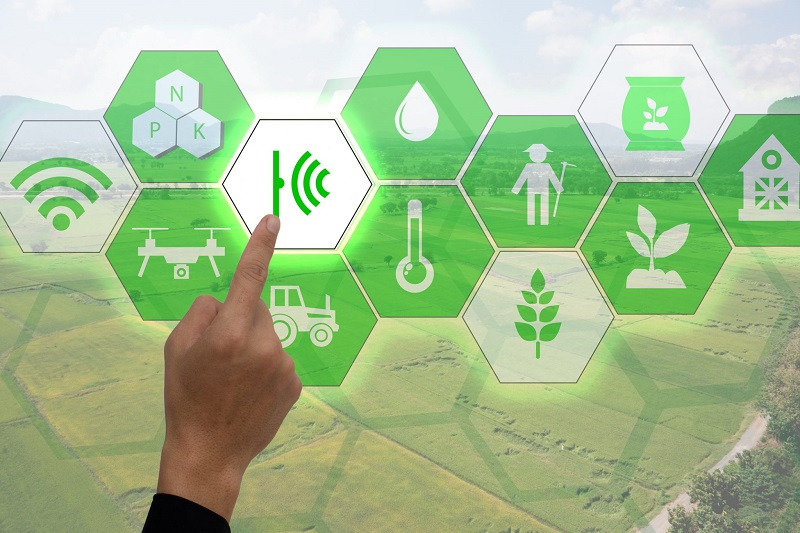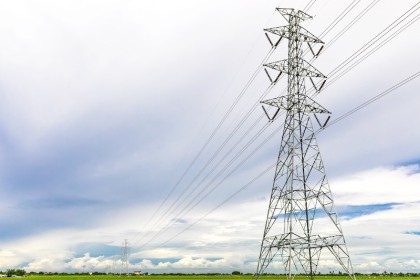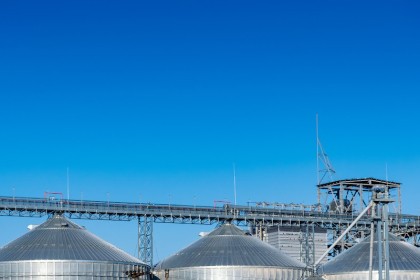
Technology to Drive SA Agriculture Toward Sustainability
The effects of climate change on the industry are threatening the viability of the sector as an engine of economic development. Technology and the introduction of high-impact technological solutions has, however, proven to be an enabler in assisting farmers and stakeholders in addressing and alleviating these challenges.
“The sector, for example, was able to maintain double-digit growth in the second quarter of 2020 when the rest of the South African economy saw its sharpest decline with the Gross Domestic Product (GDP) contracting by 51%,” says Asif Valley, National Technology Officer at Microsoft South Africa.
“This period also saw South Africa become the second-largest exporter of fresh citrus in the world, contributing significantly to job creation and economic activity, particularly in the country’s rural areas.”
These milestones highlight the value of the sector, especially in a constrained economic climate. The challenges are compounded by the effects of climate change on the industry, with rising temperatures and growing incidences of drought caused by less rainfall, acting as major threats to the viability of the sector as an engine of economic development.
Addressing, alleviating challenges
Technology and the introduction of high-impact technological solutions has, however, proven to be an enabler in assisting farmers and stakeholders in addressing and alleviating these challenges.
A report by Research ICT Africa on Paving the way towards digitalising agriculture in South Africa has shown how advanced technologies like the Internet of Things, remote sensing technologies, and unmanned aerial vehicles can transform the agricultural sector, and help to address South Africa’s food security challenges, create jobs, and address historical inequalities by reducing costs, conserving resources, optimising inputs and maximising outputs.
“Investing in next-generation technologies such as artificial intelligence and machine learning is critical to address the challenges that the country’s farmers and agricultural workforce face, make a meaningful economic impact and drive the sustainability of one of South Africa’s most important job-creating sectors,” says Valley.
Mitigating climate change challenges
There are already several examples of AI-driven solutions that are being introduced to mitigate the impact of damage caused by climate change and drive the sustainability of critical sectors such as agriculture.
Azure FarmBeats, for example, enables data-driven farming which combines AI and farmers’ own in-depth knowledge about their farm to help increase farm productivity, reduce costs, and increase sustainable agriculture. Unique solutions are able to solve the challenges of limited Internet connectivity or power in remote areas, including low-cost sensors, drones, and vision and machine learning algorithms, to help increase food yield.
Azure FarmBeats then aggregates agricultural data from different sources and provides actionable insights that take the guesswork out of what, when, and where to plant to drive the highest possible yields and reduce costs.
These benefits will be further enhanced by the recent change in television white spaces (TVWS) regulations. TVWS technology can transform the way citizens buy and use wireless Internet across the African continent.
The Independent Communications Authority of South Africa (ICASA) has now opened the spectrum to operate TVWS – which will help farmers, who previously were not able to use this technology and are challenged by limited Internet access, to digitally transform their farms.
Other agricultural-focused solutions form part of Microsoft’s AI for Earth programme, which supports organisations that are applying AI to environmental challenges. It falls under the technology company’s broader AI for Good initiative, which provides technology, resources, and expertise to empower the individuals working to solve humanitarian issues using advanced technologies, including cloud and AI.
Since 2019, 10 South African organisations have successfully applied for AI for Earth grants to further research that will create a more sustainable and accessible world.
Some examples include:
The South African Radio Astronomy Observatory, a facility of the National Research Foundation, is developing predictive modelling of the rapid intensification of tropical cyclones in the Indian Ocean. This enables a deep understanding of changing weather patterns that farmers can use to guide planting cycles and varieties.
The South African Environmental Observation Network is developing an AI-enabled early warning system on vegetation change using Microsoft Cloud and AI tools. Up-to-date information on vegetation will aid fire and water management and reduce human exposure to water scarcity and fire-related disasters while contributing to the conservation of biodiversity.
The ability to understand threats to biodiversity and to implement solutions is essential for the long-term success of the agricultural industry and the country’s food security. Maintenance of this biodiversity is vital for the sustainable production of food and other agricultural products and to harness the benefits these provide to humanity, including food security, nutrition and livelihoods.
Using machine learning and deep learning models, Regina Analytics is building an application that can be used without internet access to detect, diagnose, and classify Citrus Black Spot disease (CBS). CBS is a fungal disease that affects the rind of the fruit by causing lesions but does not result in decay.
It has a significant economic impact because the external blemishes make citrus fruit unsuitable for the fresh export market. The ability to detect, diagnose and classify the disease is critical in light of South Africa’s position as the second-largest exporter of fresh citrus in the world.
“Technology has the power to change the face of farming, using smart tools and platforms for precision farming, predicting weather patterns, and maximising the use of scarce water resources. By harnessing high-impact technological solutions such as AI, we can help enable South Africa’s farmers to solve the pressing issues around food security and drive the long-term sustainability and growth of one of our most critical industries,” says Valley.
Cape Business News. Technology to drive SA agriculture toward sustainability.
Retrieved 23 April 2021, from the Cape Business News website:
https://www.cbn.co.za/featured/technology-to-drive-sa-agriculture-toward-sustainability/












